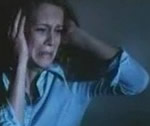Syllabus Quick Links
-
Requirements
- Class Participation
- Essays
- Electronic Film Responses
- Homework
- Peer Critiques
- Conferences
- Portfolio
- Policies, Texts, Grading
- Lateness Policy
- Plagiarism Policy
- Texts and Other Materials
- Grading
- Download Syllabus
- PDF :: Word 2007 :: Rich Text
Course Information

Instructor: K. Gillis-Bridges
Class: MW, 12:30-1:50 p.m.
Rooms: Mary Gates 082A/082
Office:
Padelford A-105
Hours: MW 11 a.m.-12 p.m.
Phone/Voice: 206.543.4892
Email: kgb@u
Syllabus
Requirements

Class Participation
Class discussion constitutes one key method of developing your analytical skills. Thus, I expect prompt, regular attendance and active participation in discussions of films, readings, and student writing. You should come prepared for each class session, with assigned readings completed and assigned films screened. You should also plan to ask questions, make comments, analyze clips, paraphrase your electronic postings, share writing done as homework, and critique essay drafts. Students can expect me to call on them, as I want everyone to earn full points for class participation. Like all skills, speaking in class becomes easier with practice. I do not expect fully polished analyses during discussion; rather, your contributions represent ideas for further development.
The computer-integrated environment presents the temptation of email and the web; therefore, students must follow basic ground rules in the lab:
- Students will not type when somebody is addressing the class.
- Students will not check email or access the web during class unless instructed to do so.
Lack of engagement in class activities, inadequate preparation, and failure to adhere to lab classroom rules will substantially lower your participation grade for the course.
::Top::
Essays
You will complete three major essays—a 1000-word scene analysis, a 1000- to 1250-word comparison paper and a 1000- to 1250-word analysis of gender and sexuality in the horror film or postmodern horror. The first essay builds upon the Comparative Literature 272 scene analysis paper, the third anticipates essay questions on the Comparative Literature 272 final, and the second is joint with the lecture course. I require at least two drafts of all essays; only the final draft receives a grade. Before revising your draft and submitting it for a grade, you will receive feedback from your peers and me. You can also seek additional feedback from the cinema studies course TAs and from consultants at the English Writing Center, located in Padelford B-12, or the Odegaard Writing and Research Center, located in Room 326 of Odegaard Undergraduate Library. Please note that you must turn in all three essays in order to pass the class.
Please title, paginate, type and double-space your essays, using one-inch margins. In the upper left-hand corner of the first page, include your name, the course number, the assignment number, and the due date. Use a commonly installed font (Arial, Garamond, Georgia, Times New Roman, Verdana) for your papers. All essays will be submitted to the class network in electronic format. To avoid problems with lost files, bring your work to class in two of the following electronic formats: email attachment, file uploaded to Dante, or memory stick.
::Top::
Electronic Film Responses
Students will use the class discussion board to post responses to films viewed in Comparative Literature 272. Before selected screenings, I will post questions that ask you to analyze films in light of the formal and theoretical principles outlined in lectures and readings. Your postings should provide 200- to 250-word responses to selected questions; you may also address your classmates’ ideas as you respond to the question. The electronic posting site allows you to formulate ideas for papers and to raise issues for in-class discussions. Your postings will be graded on a credit/no credit basis, with credit granted to on-time postings that meet the length requirement and demonstrate serious engagement with the questions.
::Top::
Homework
Throughout the quarter, you will complete homework assignments as part of the process of developing your formal essays. Homework should be typed and formatted as described above unless otherwise specified.
::Top::
Peer Critiques
English 197 uses a workshop format, with students sharing their writing with each other. For each essay assignment, students will critique drafts in small groups. Each student will complete peer critiques for two group members and receive critiques from two fellow writers. In class, we will develop criteria to guide the peer review process
::Top::
Conferences
In addition to regular class meetings, students will attend conferences with the instructor on each major essay. Such conferences allow us to talk one-on-one about your first draft and ideas for revision. You should come to conferences prepared to discuss the responses you have received from peers, your own assessment of your draft, and your plans for revision.
Although my suggestions are designed to help you write more critically, and if you follow those suggestions your paper will probably improve, you will not automatically receive a 4.0. In our conferences, we will focus on selected aspects of your draft—there is not enough time to address everything. Moreover, while revising will help you progress as a writer, revision on an individual draft may not improve all aspects of that draft, and new issues may arise as you rewrite. However, the more willing you are to revise substantially (which often means rewriting from scratch), and the more often you repeat the process of critiquing and revising, the better your grade on each paper is likely to be.
::Top::
Portfolio and Reflective Statement
At the end of the term, you will turn in an electronic portfolio of selected essays, peer critiques, and homework/responses completed over the course of the quarter. The portfolio will include reflective commentaries that explain your selections and evaluate your progress as a writer in cinema studies. In order to have the widest possible range of materials from which to select your portfolio pieces, you will upload copies of all homework, in-class writing, peer critiques, and essay drafts to your electronic portfolio space. Please note that you must turn in the electronic portfolio in order to pass the course.
::Top::
Email and Access to Course Web Site
You must have a working UW email account and a way to access the course web site. I will frequently upload schedule changes and handouts generated during class discussion to the web. You will exchange peer reviews done as homework using web-based tools. I also expect to communicate regularly with you—and for you to communicate with each other—via email. As a student in a computer-integrated course, you have late-afternoon and early evening access to Mary Gates 076, a CIC-restricted lab connected to our class network. The lab is open afternoons Sunday through Friday; hours are posted on the CIC lab home page.
::Top::
Lateness Policy
Since homework and electronic postings form the basis of in-class activities, I will not accept these assignments late except in cases of documented medical or family emergency.
Whether first or final draft, essays are due at the beginning of class; work submitted after the first five minutes of class will be considered late. Failure to submit essay drafts will result in a 20-point deduction from the final grade, as revising from feedback constitutes an essential part of the essay assignments. Late essay revisions will receive a 10-point deduction per day late, including weekends and holidays. I will make exceptions to the lateness policy only in cases of documented illness or family emergency.
Technology glitches do not constitute valid excuses for lateness. To avoid computer problems, you should save frequently while working, and you should back up work saved to a hard drive on a memory stick, your Dante account, or your E-Portfolio space. If you use a word processing program other than Microsoft Word, make sure to save in Rich Text format to avoid file conversion problems.
::Top::
Plagiarism Policy
In your electronic postings, homework, and essays, you may draw upon the ideas and words of other writers. However, you must make clear to your audience that you are incorporating another’s work by placing quotation marks around exact words and citing the author’s name whenever you quote, summarize or paraphrase. Failure to credit sources may result in a failing grade for the assignment, a failing grade for the course, or expulsion from the university. The course links page contains information on when and how to cite sources.
::Top::
Films and Textbooks
The following films and texts are required for English 197:
- All films, readings and lecture notes from Comparative Literature 272
- Recent style manual (Hacker, A Writer’s Reference; Lunsford and Connors, The Everyday Writer; Harris, Prentice Hall Reference Guide to Grammar and Usage; etc.)
- CIC Student Guide
::Top::
Other Materials
You will need several reliable ways to transfer your work between home and lab computers. You may electronically transfer files via FTP or email attachment, or you may use a memory stick. Because we will frequently view film clips on lab computers, you will also need to bring a small pair of headphones to our Wednesday classes.
::Top::
Grading
Grades in English 197 will be computed by points, with 400 points equaling a 4.0, 300 points a 3.0, and so on. If your total falls between grades, I will round up if you score one to five points below the higher grade and round down if you score one to four points above the lower grade. For example, 274 points equals a 2.7 and 275 points a 2.8. Students who score less than 65 points total will receive a 0 for the course, as the UW grading system does not scale grades lower than .7.
Apart from postings, which are graded on a credit/no credit basis, points all other assignments will be awarded based on quality of work submitted. You will receive grading criteria for the essays when I distribute those assignments. I will grade homework and peer reviews on a five-point scale as follows:
| Points | Homework | Peer Review |
| 5 | Exceptionally thorough, focused, organized, and well-argued response to the assignment | Complete critiques with perceptive, substantial and useful comments |
| 3-4 | Thoughtful, adequately organized and argued response | Complete critiques with thoughtful comments |
| 1-2 | Simplistic, inadequately organized and argued response | Incomplete or hastily done critiques |
Each component of the course is worth the following number of points:
- Class Participation: 40 points
- Homework, Electronic Postings, and Peer Critiques: 80 points
- Essays: 240 points
- Electronic Portfolio: 40 points
::Top::